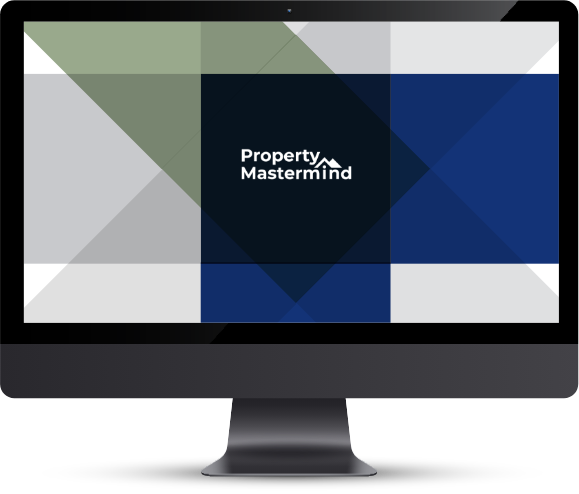How To Finance Your Property Development Project
Introduction
It’s a big call to say any one step in the property development process is more important than another. The truth is they are all important, but at the end of the day there would be very few people with enough cash sitting in the bank to do a property development without borrowings.
So, thank goodness for the banks and other financiers. The truth is they will put in most of the money for our development – up to 75% – 80% in fact. We can have the best deal in town but unless we can get it financed, we can’t even get to first base. “Show me the money” must be the catch-cry of all developers.
Terminology
Before we go any further it would be a good time to discuss some of the terminology you are likely to encounter in your pursuit of suitable finance to fund your project
TDC This stands for Total Development Costs. It is the total of all the costs you will encounter in your development. This would include such items as land, council fees, professional fees, construction costs, finance, marketing etc.
GRV This stands for Gross Realisation Value. It is the end value of your project when fully completed or in other words the sum of the sale prices. For instance, if you developed three townhouses and each would be worth $700,000 on completion the GRV would be $2,100,000.
LVR This stands for the Loan to Value ratio and is expressed as a percentage. It is the loan expressed as a percentage of the GRV.
Conventional Avenues of Finance
Retail Finance
If we were to develop a small project, say up to three townhouses or lots we could obtain finance from a retail financier. For instance, retail banks are the typical suburban branches. It is where you might have gone to borrow for your home or an investment property.
Just like when you borrowed for your home you need to supply a deposit (called equity in the development world) and prove you have the income to service the loan.
Interest rates are like property investment loans and establishment fees are low.
Commercial Finance
Commercial finance kicks in with slightly larger projects from say four townhouses or lots and larger. Just like the retail loan you must put your equity in upfront but what is different from retail finance is that the interest is capitalised.
That means that the interest becomes part of the loan, so you don’t have to come up with the monthly interest payments. As a result, serviceability is less of an issue compared to retail loans.
Interest rates are typically 2% – 3% higher than retail loans and establishment fees are often around 0.5% of the loan value.
Non-Banks
Non-banks cover a range of financiers often referred to as private equity funders. They operate under the jurisdiction of ASIC (Australian Securities and Investment Commission) whereas the banks operate under the jurisdiction of APRA (Australian Prudential Regulation Authority).
Their interest rates are usually 3% – 5% higher than the commercial banks and their application fees can be 1% – 2% of the loan value.
Typically, they require less presales than a bank (if at all), lend to a higher LVR and look less at the borrower and more at the project.
Creative Finance
Creative finance are strategies developers use to undertake developments even though they might have little or no money.
One example is what we call a joint venture with an equity partner. This is where another person might put in the required equity and you put in nothing. You might both go on the loan, but you will find the deal and project manage it in return for not putting in the equity. On completion from the sales proceeds the equity partner would get back their equity input plus say half of the profit.
Role of the Valuer
With a retail loan on small projects a retail valuer values the land and the GRV for the bank. During construction they will track progress and authorise payments to the builder at various stages of completion.
In the case of a commercial loan the commercial valuer (different from a retail valuer) will value the land and the GRV and conduct a feasibility to decide on the viability of the project on behalf of the financier.
Related Post: Three Important Steps in Determining the Feasibility of Your Property Development Project ]
Unlike a retail loan, the commercial valuer doesn’t authorise progress payments to the builder. That role is performed by a quantity surveyor.
Role of the Quantity Surveyor
Initially in a commercial loan application the quantity surveyor (QS) examines the plans, specifications, builder’s quotation and the builder’s track record. During construction the QS goes to site and authorises the works done by the builder for payment from the bank. This is usually done on a monthly basis.
Tip
Financing a development for the first time can be a bit daunting. Seeing so much hinges on it we recommend the use of a commercial finance broker when you are starting out to give you the very best chance of success. Even then are pitfalls you need to be aware of.
If you like to be more confident in this career, you can learn from Property Mastermind’s Online Course – check it out here.
For inquiries, call Property Mastermind on 1300 729 550 or send email to admin@propertymastermind.com.au.
How To Finance Your Property Development Project
It’s a big call to say any one step in the property development process is more important than another.

How To Finance Your Property Development Project
Warning: Illegal string offset 'title' in /home/proper39/public_html/nov/wp-content/themes/novel/single-post.php on line 55
Notice: Uninitialized string offset: 0 in /home/proper39/public_html/nov/wp-content/themes/novel/single-post.php on line 55
Kind Words From Our Students

John Comninos
"I feel more confident going forward with developing now."
Your course has really gelled the bits and pieces… It’s managed to fill in the gaps in my knowledge and the support manual has been a great help …I feel more confident going forward with developing now.

Elissa Frazer
"Very Impressed!"
The 3 day online workshop was great! So thorough, so knowledgeable and Bob has so much experience to draw from. Very impressed!

Robyn Wawn
"From Bob’s training, I learned there is more than one way to skin the property development cat."
From Bob’s training, I learned there is more than one way to skin the property development cat. I purchased my property with no money and leveraged off creative ways to finance its development and to take it in stages to reach its full potential. I am also team-building with the right professionals to delegate to who provide value for money to get the project underway and stay on track.
AS SEEN IN






You May Also Like...




Ready to Learn More About Property Development?
BE MENTORED BY US

